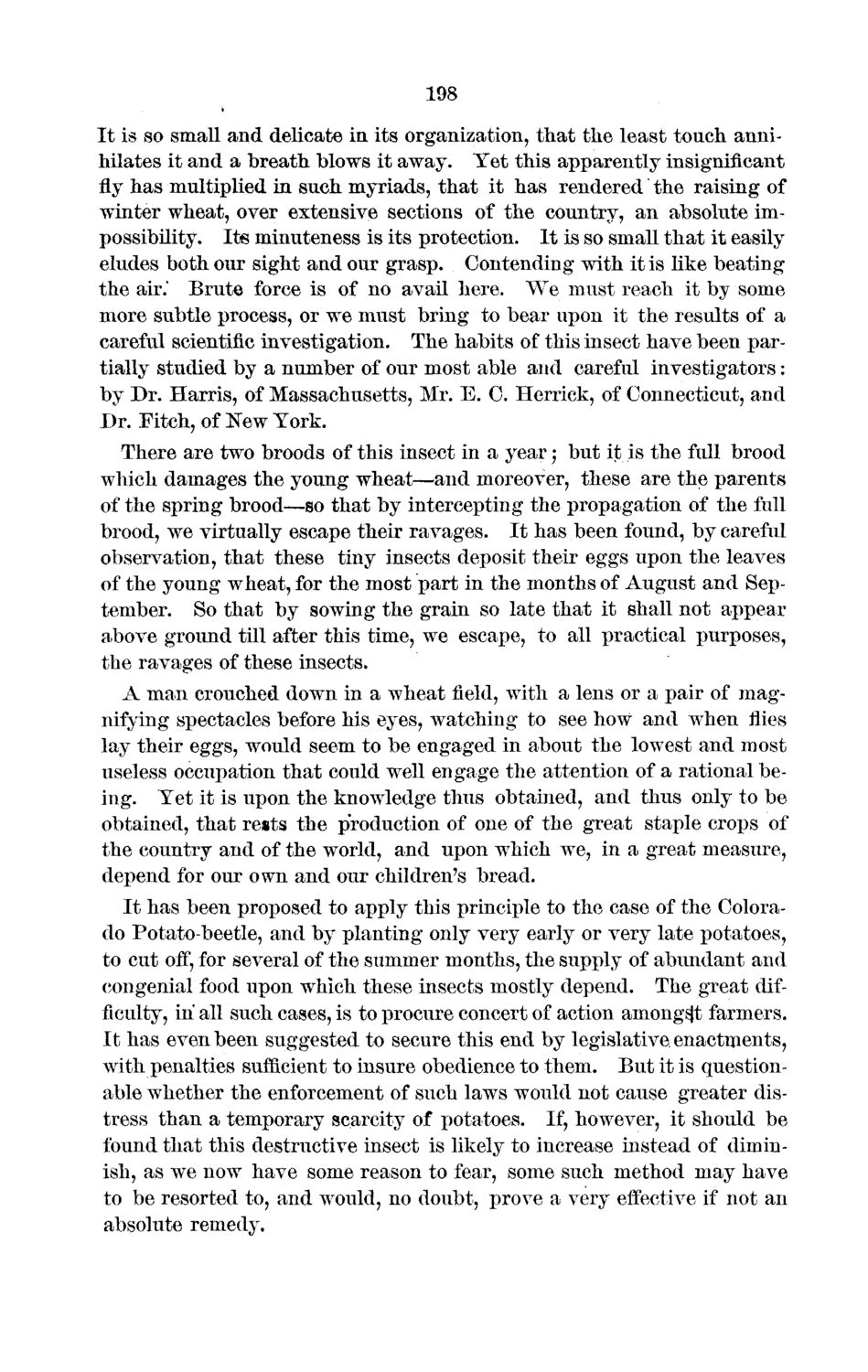| |
| |
Caption: Board of Trustees Minutes - 1872
This is a reduced-resolution page image for fast online browsing.

EXTRACTED TEXT FROM PAGE:
198 It is so small and delicate in its organization, that the least touch annihilates it and a breath blows it away. Yet this apparently insignificant fly has multiplied in such myriads, that it has rendered the raising of winter wheat, over extensive sections of the country, an absolute impossibility. Its minuteness is its protection. It is so small that it easily eludes both our sight and our grasp. Contending with it is like beating the air." Brute force is of no avail here. We must reach it by some more subtle process, or we must bring to bear upon it the results of a careful scientific investigation. The habits of this insect have been partially studied by a number of our most able and careful investigators: by Dr. Harris, of Massachusetts, Mr. E. 0. Herrick, of Connecticut, and Dr. Fitch, of New York. There are two broods of this insect in a year; but it is the full brood which damages the young wheat—and moreover, these are the parents of the spring brood—so that by intercepting the propagation of the full brood, we virtually escape their ravages. It has been found, by careful observation, that these tiny insects deposit their eggs upon the leaves of the young wheat, for the most part in the months of August and September. So that by sowing the grain so late that it shall not appear above ground till after this time, we escape, to all practical purposes, the ravages of these insects. A man crouched down in a wheat field, with a lens or a pair of magnifying spectacles before his eyes, watching to see how and when flies lay their eggs, would seem to be engaged in about the lowest and most useless occupation that could well engage the attention of a rational being. Yet it is upon the knowledge thus obtained, and thus only to be obtained, that rests the production of one of the great staple crops of the country and of the world, and upon which we, in a great measure, depend for our own and our children's bread. It has been proposed to apply this principle to the case of the Colorado Potato-beetle, and by planting only very early or very late potatoes, to cut off, for several of the summer months, the supply of abundant and congenial food upon which these insects mostly depend. The great difficulty, in all such cases, is to procure concert of action amongst farmers. It has even been suggested to secure this end by legislative, enactments, with penalties sufficient to insure obedience to them. But it is questionable whether the enforcement of such laws would not cause greater distress than a temporary scarcity of potatoes. If, however, it should be found that this destructive insect is likely to increase instead of diminish, as we now have some reason to fear, some such method may have to be resorted to, and would, no doubt, prove a very effective if not an absolute remedy.
| |